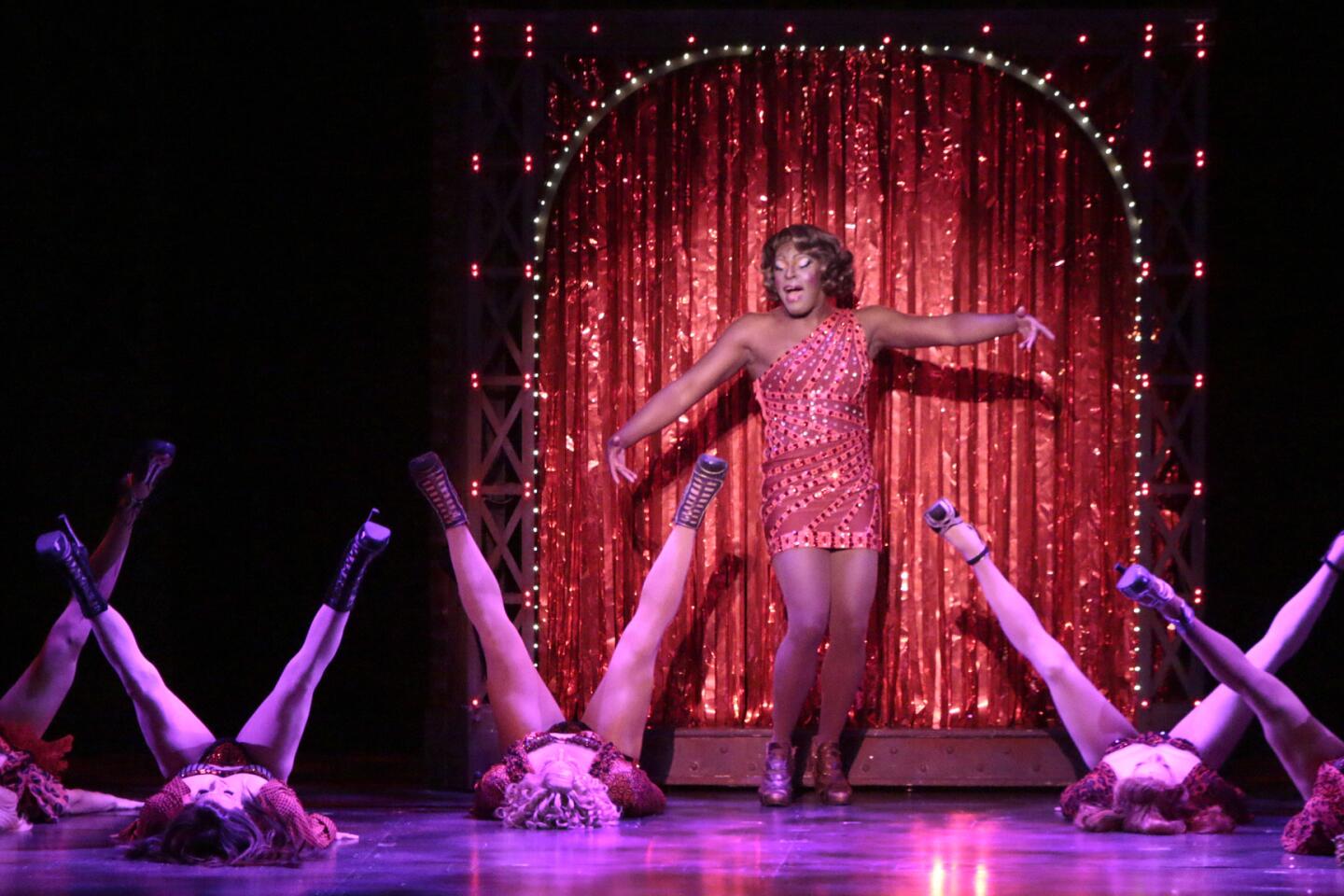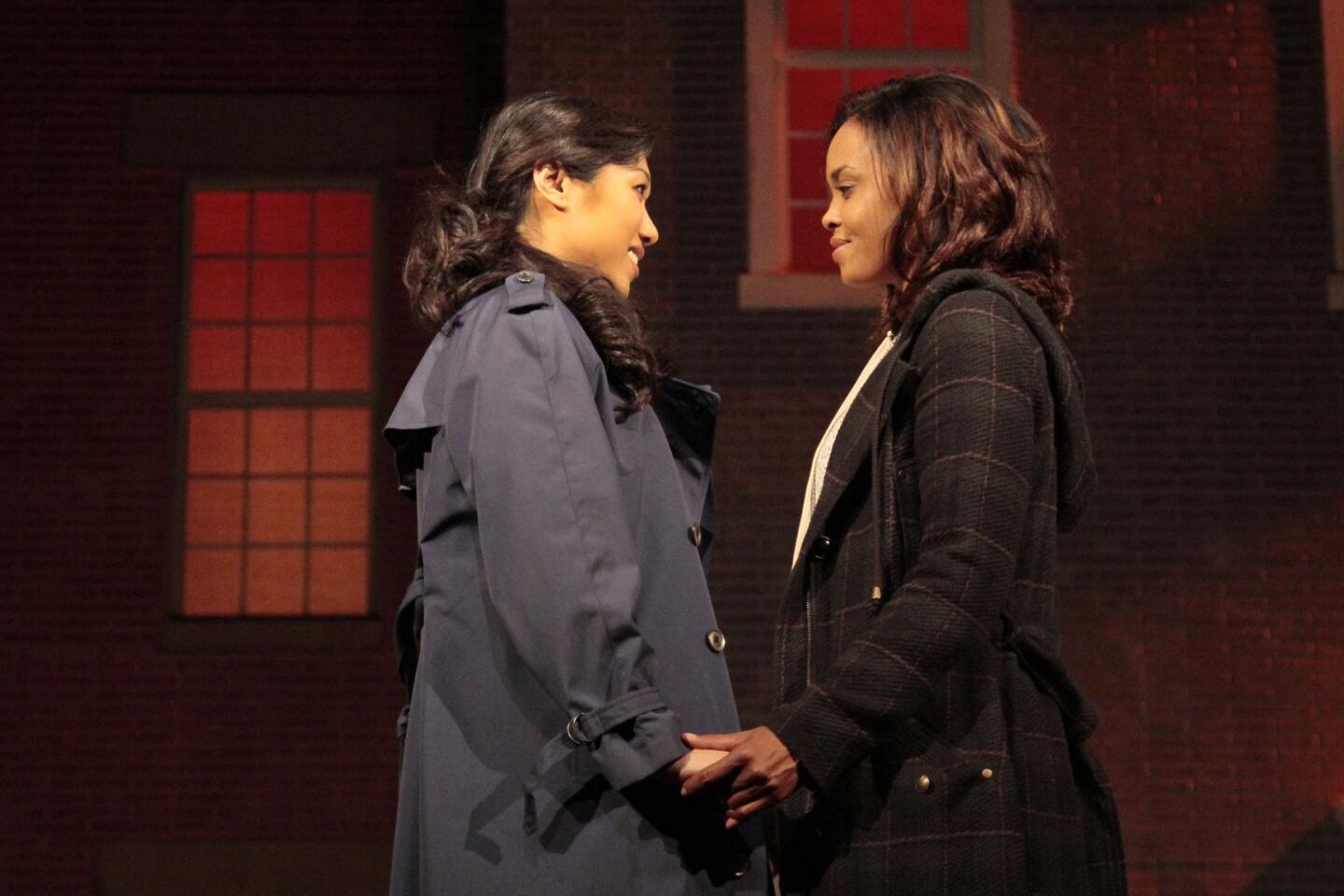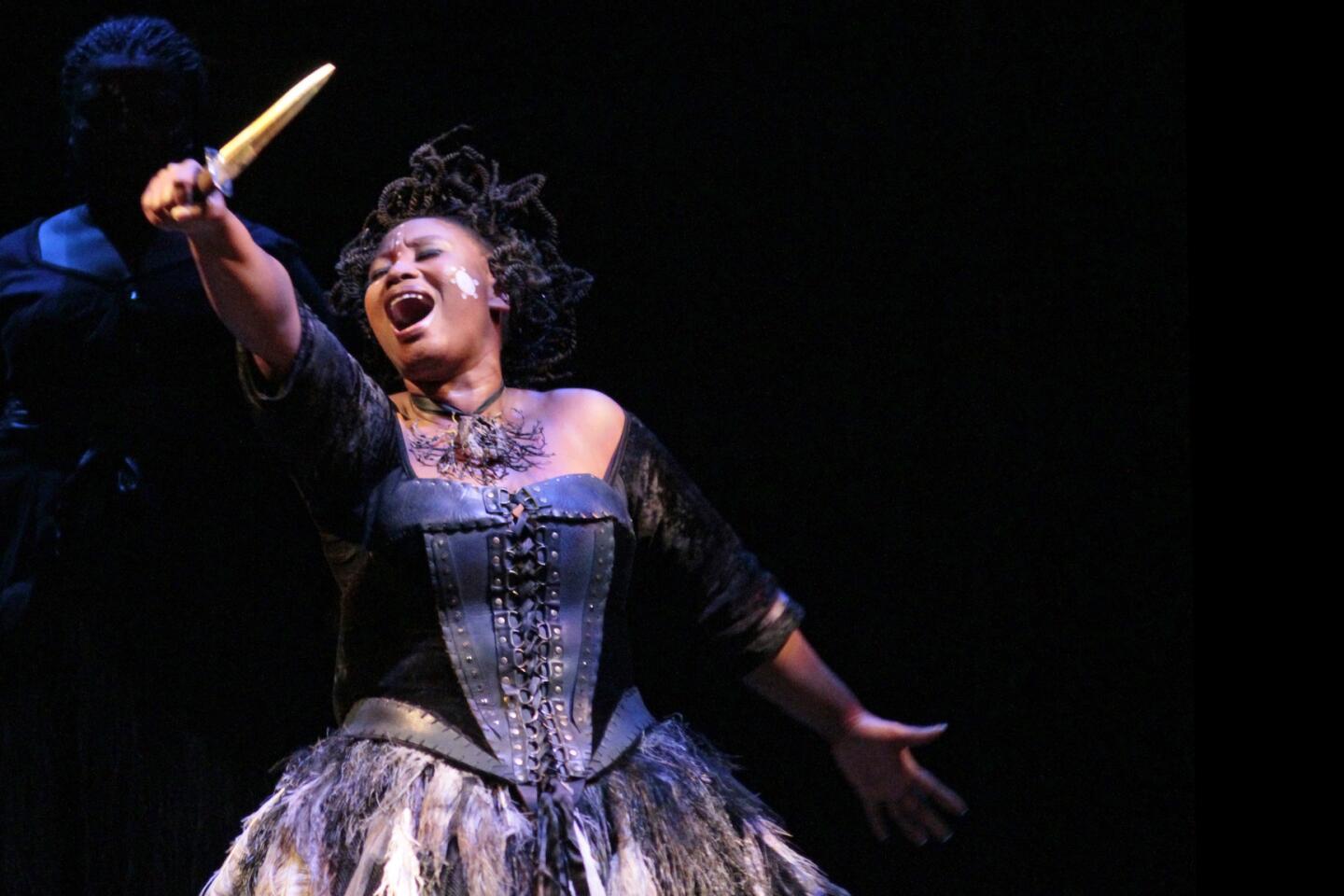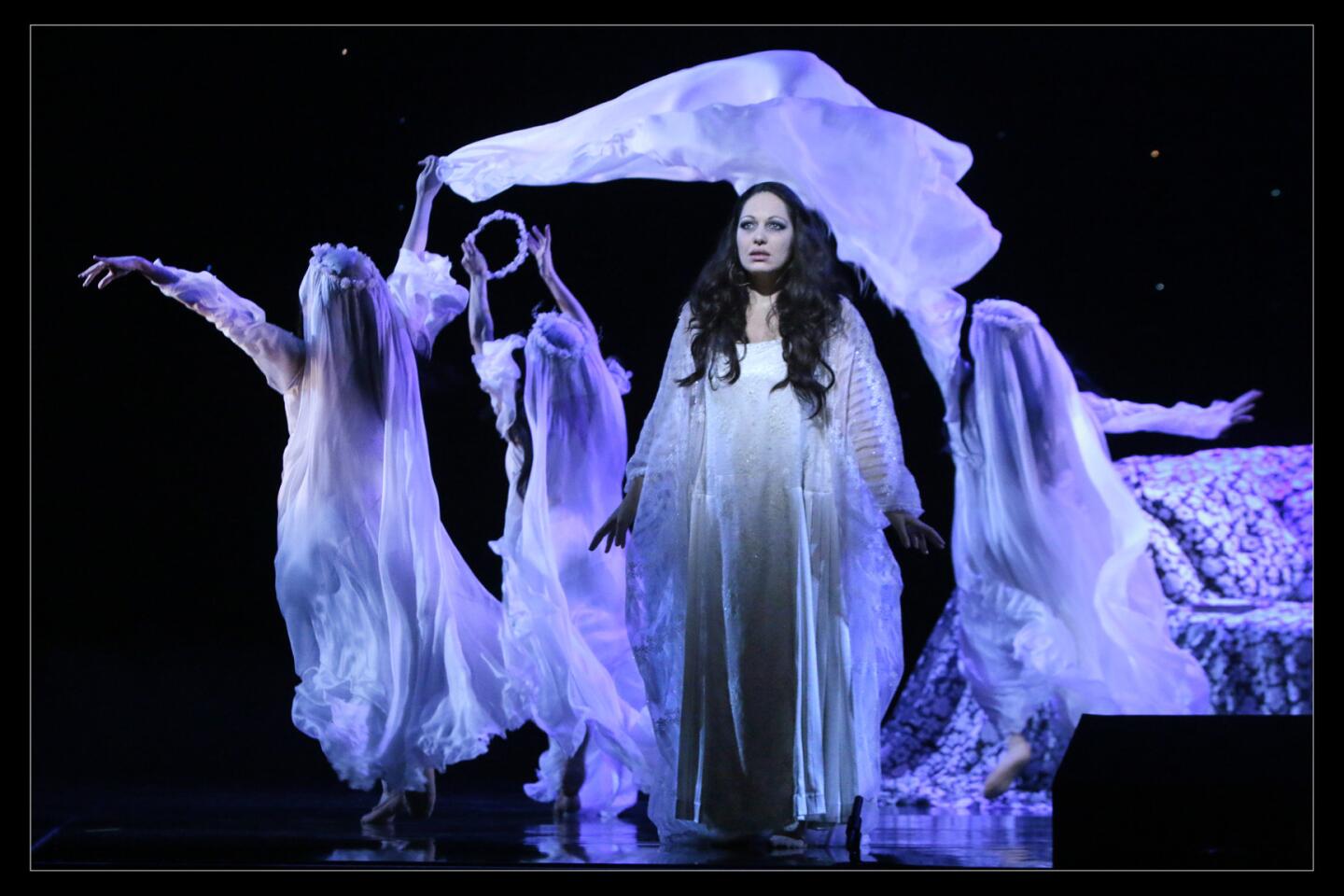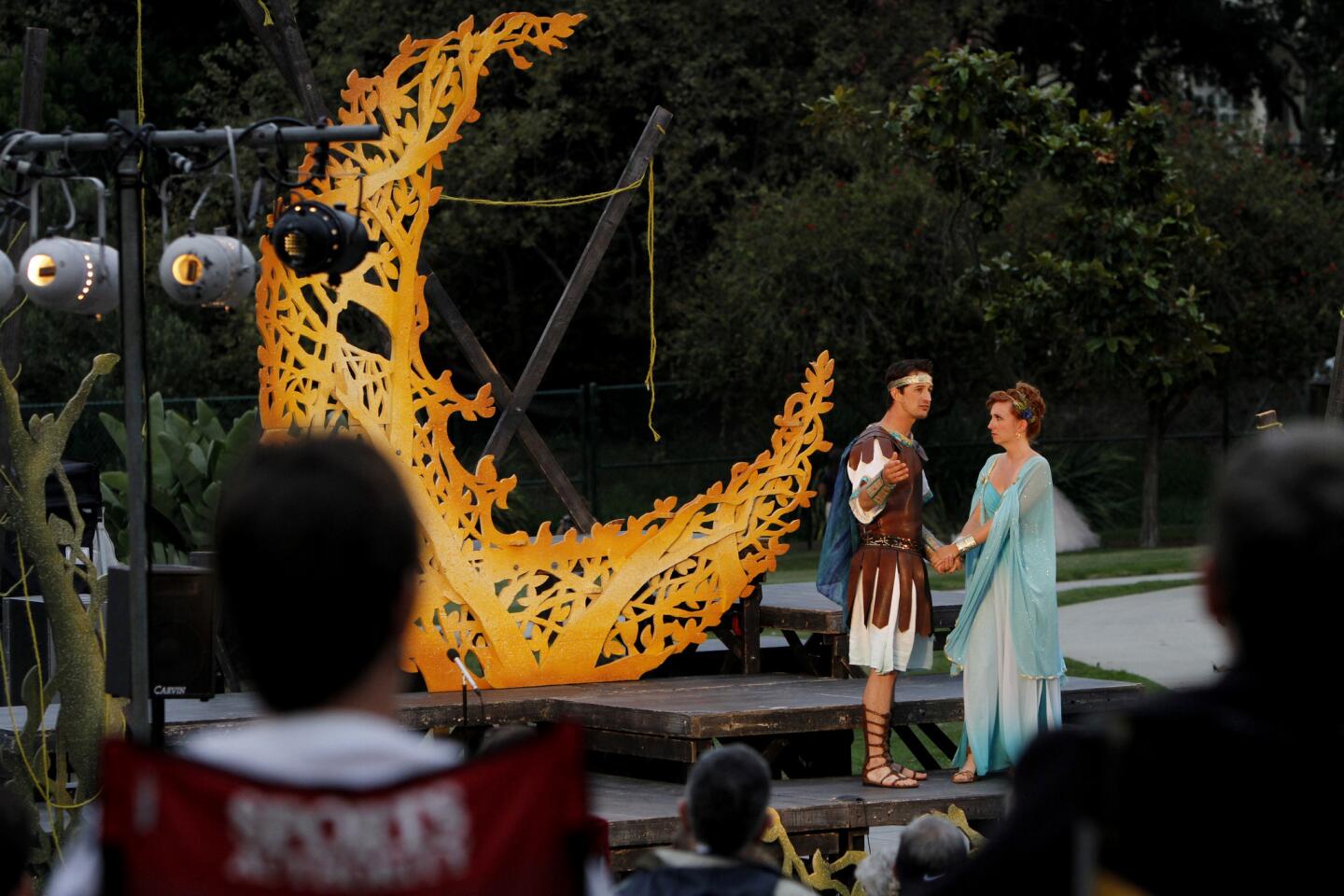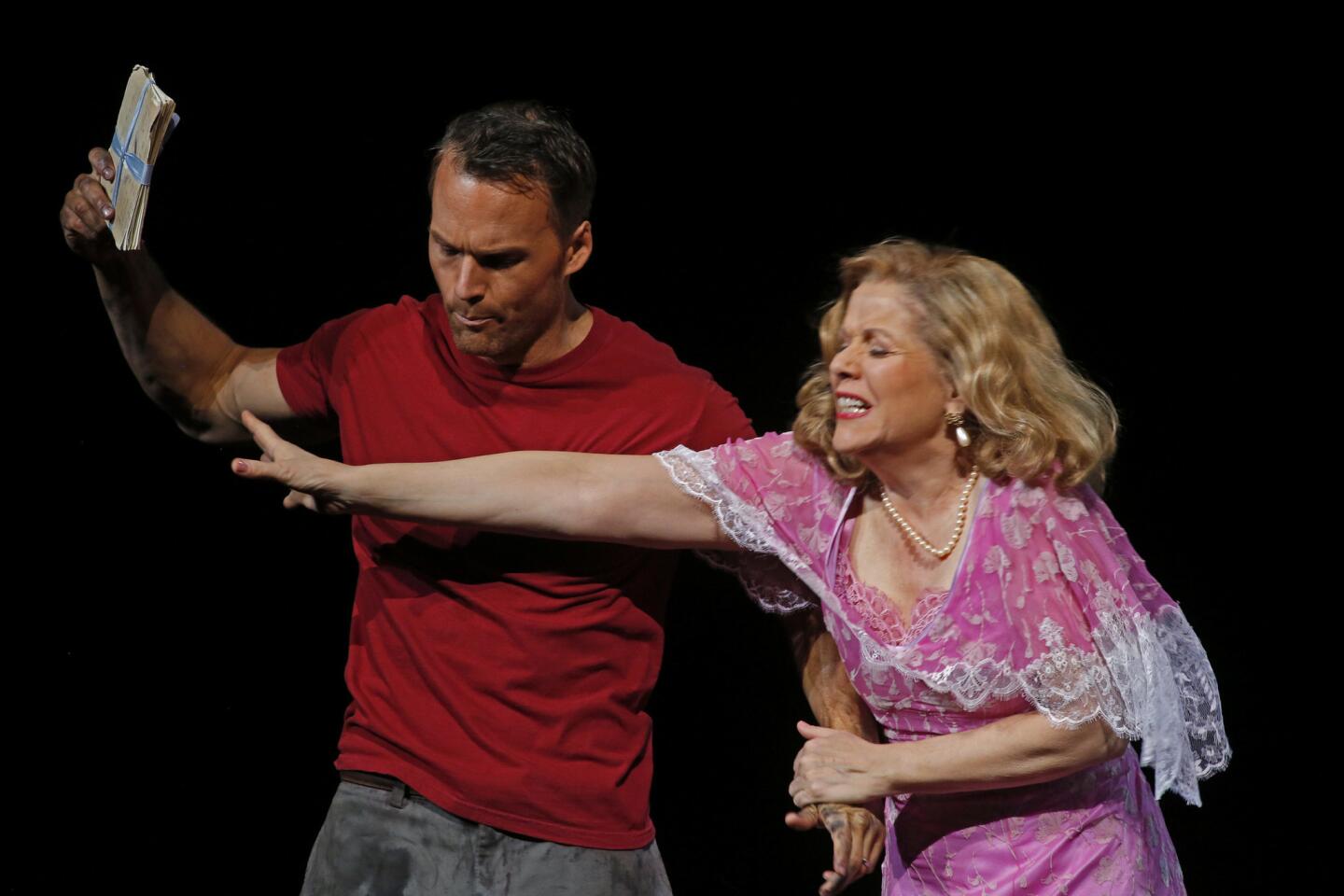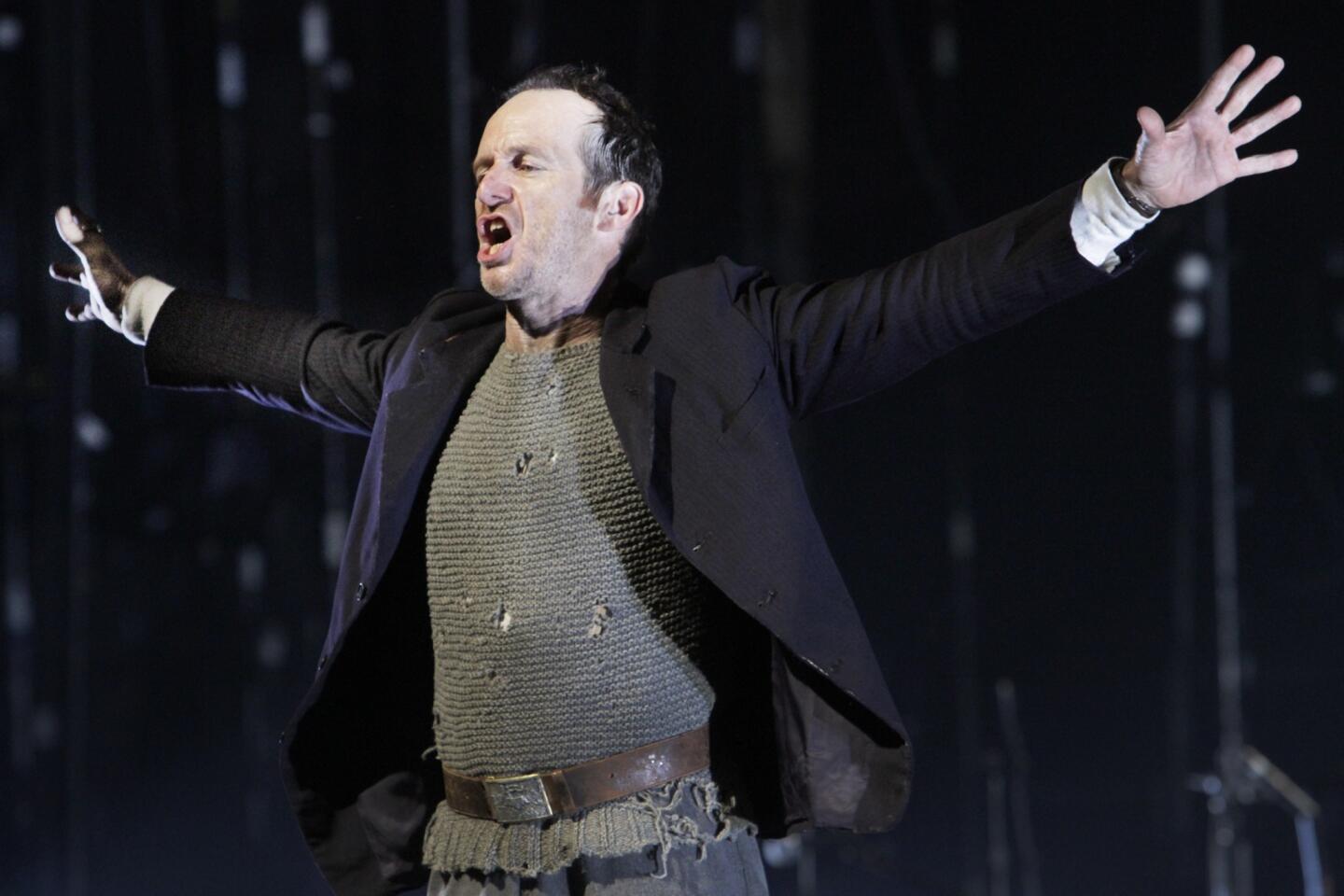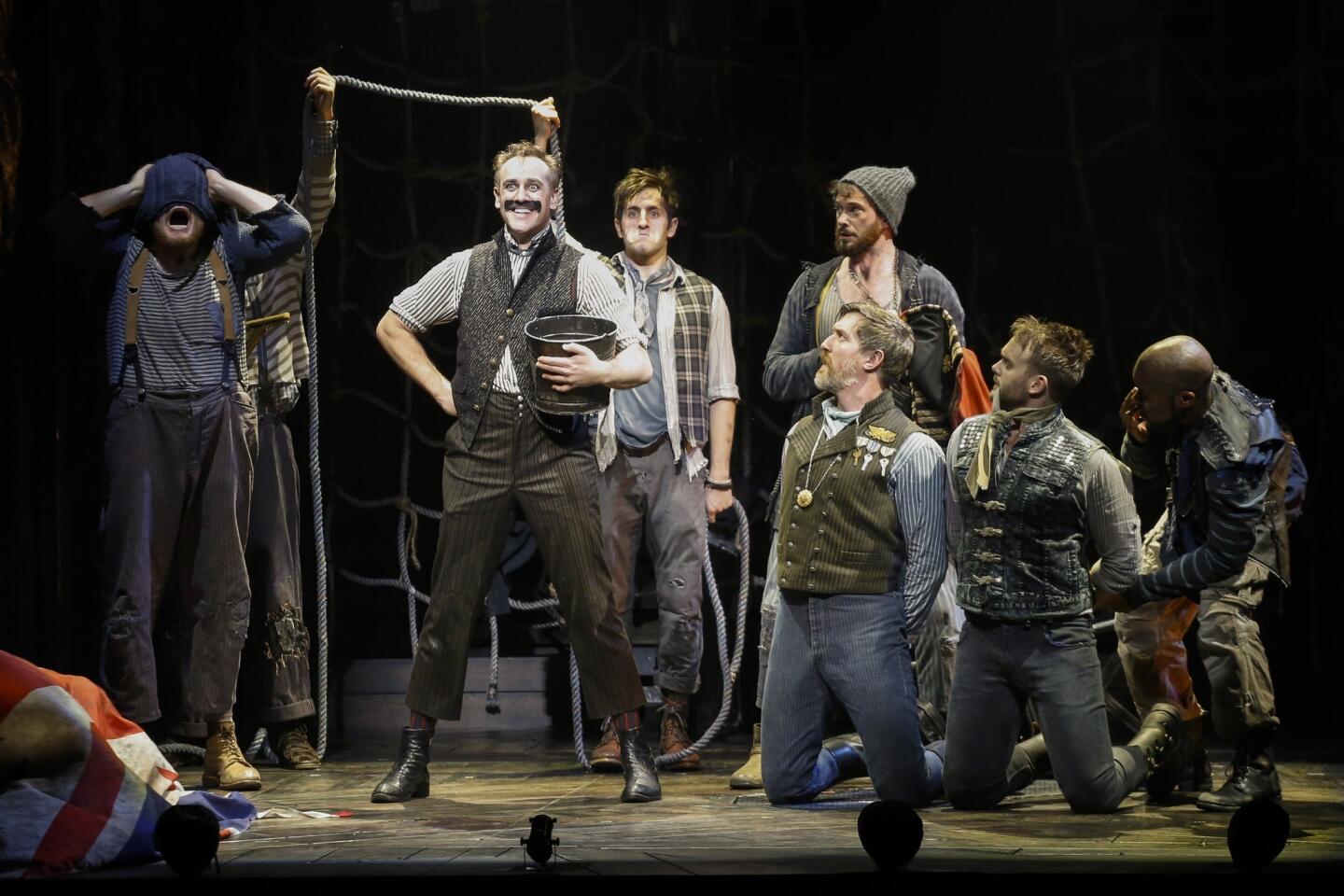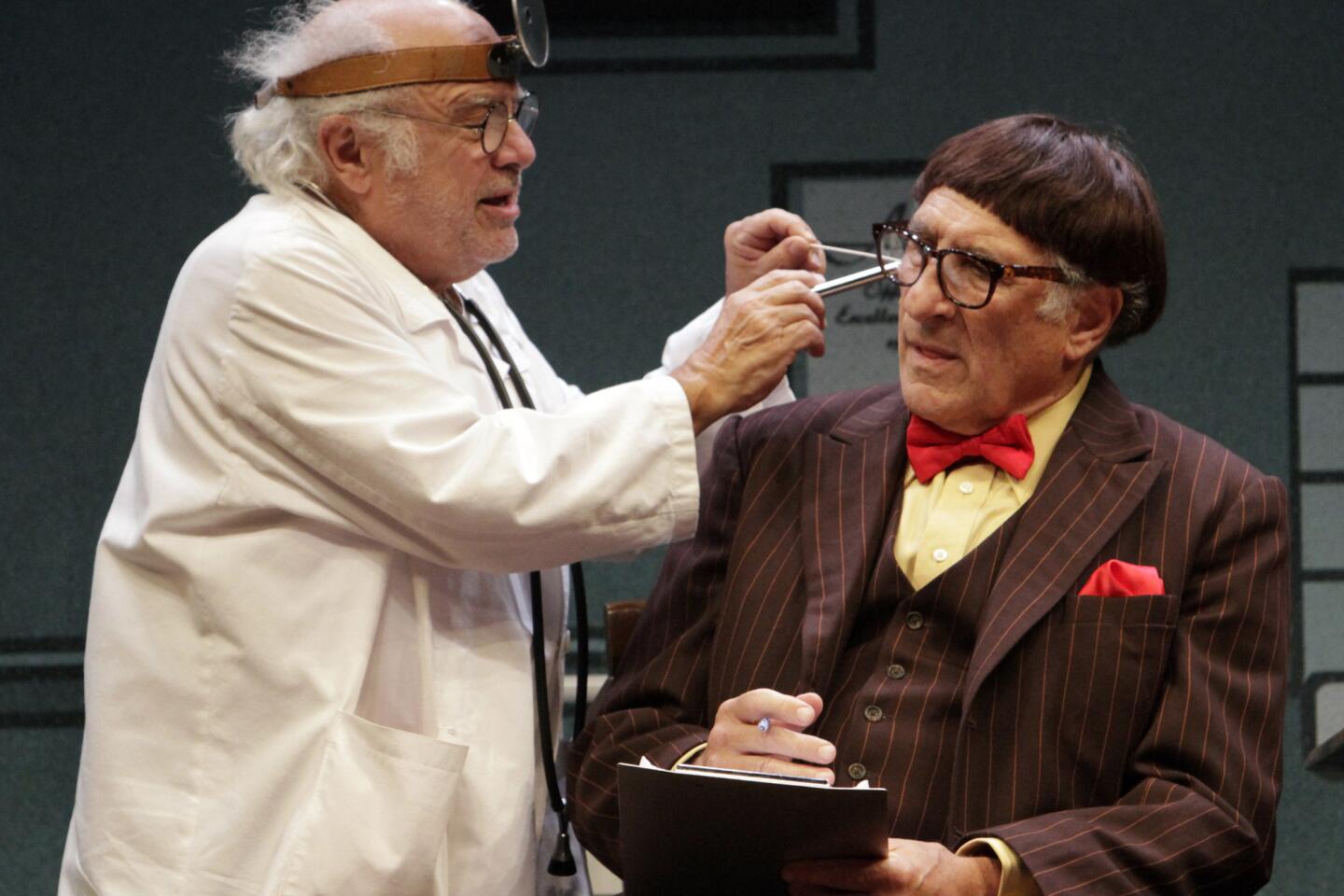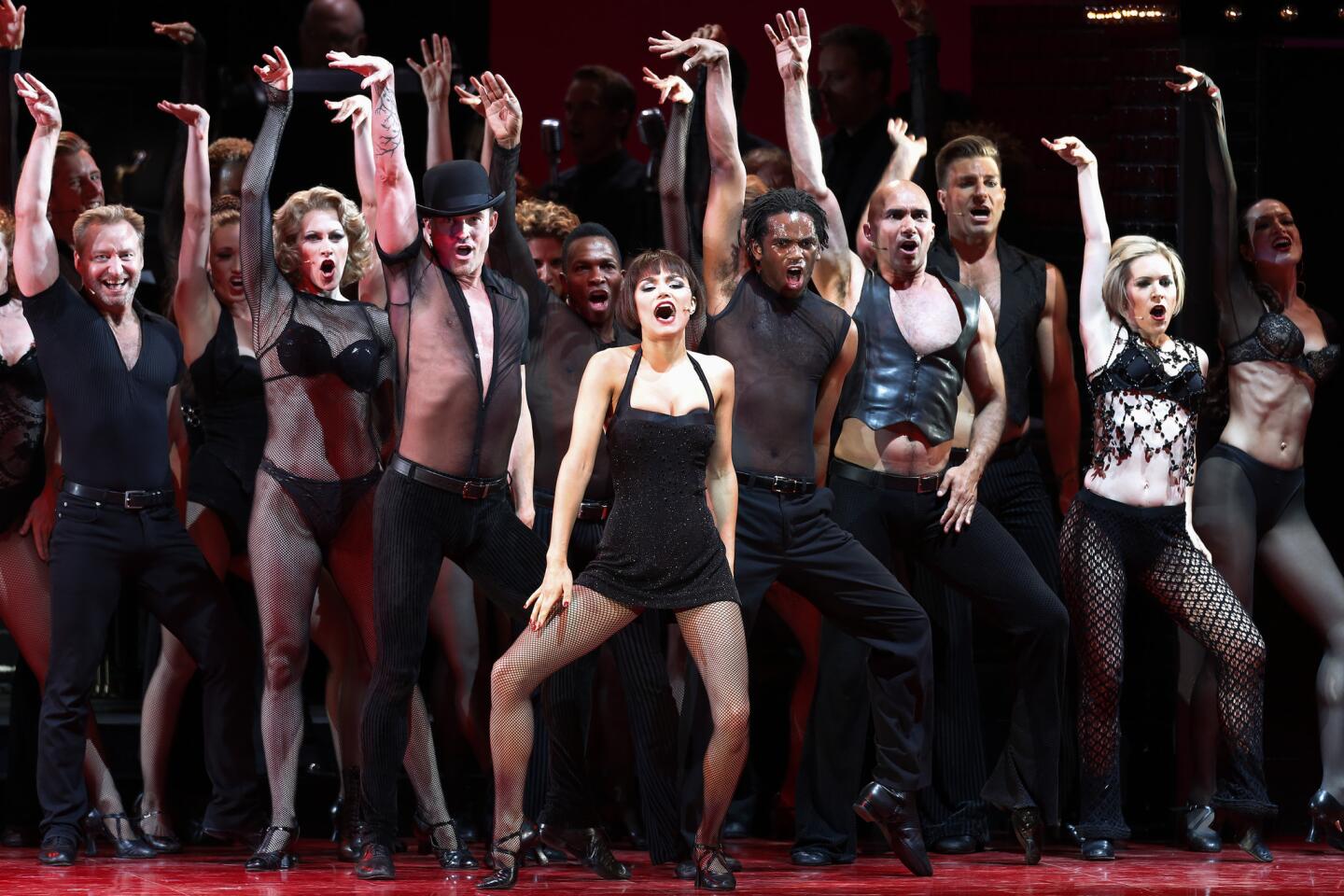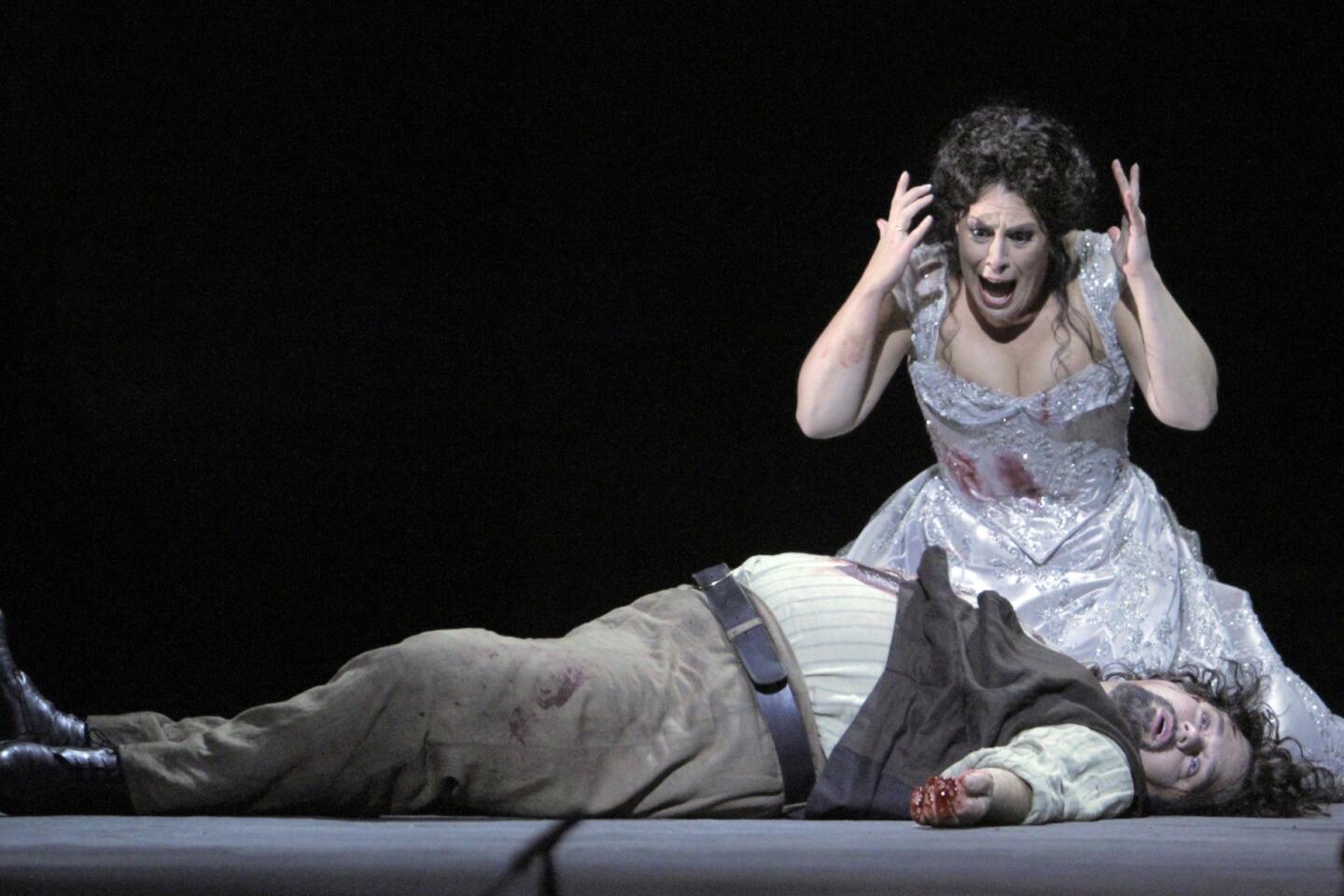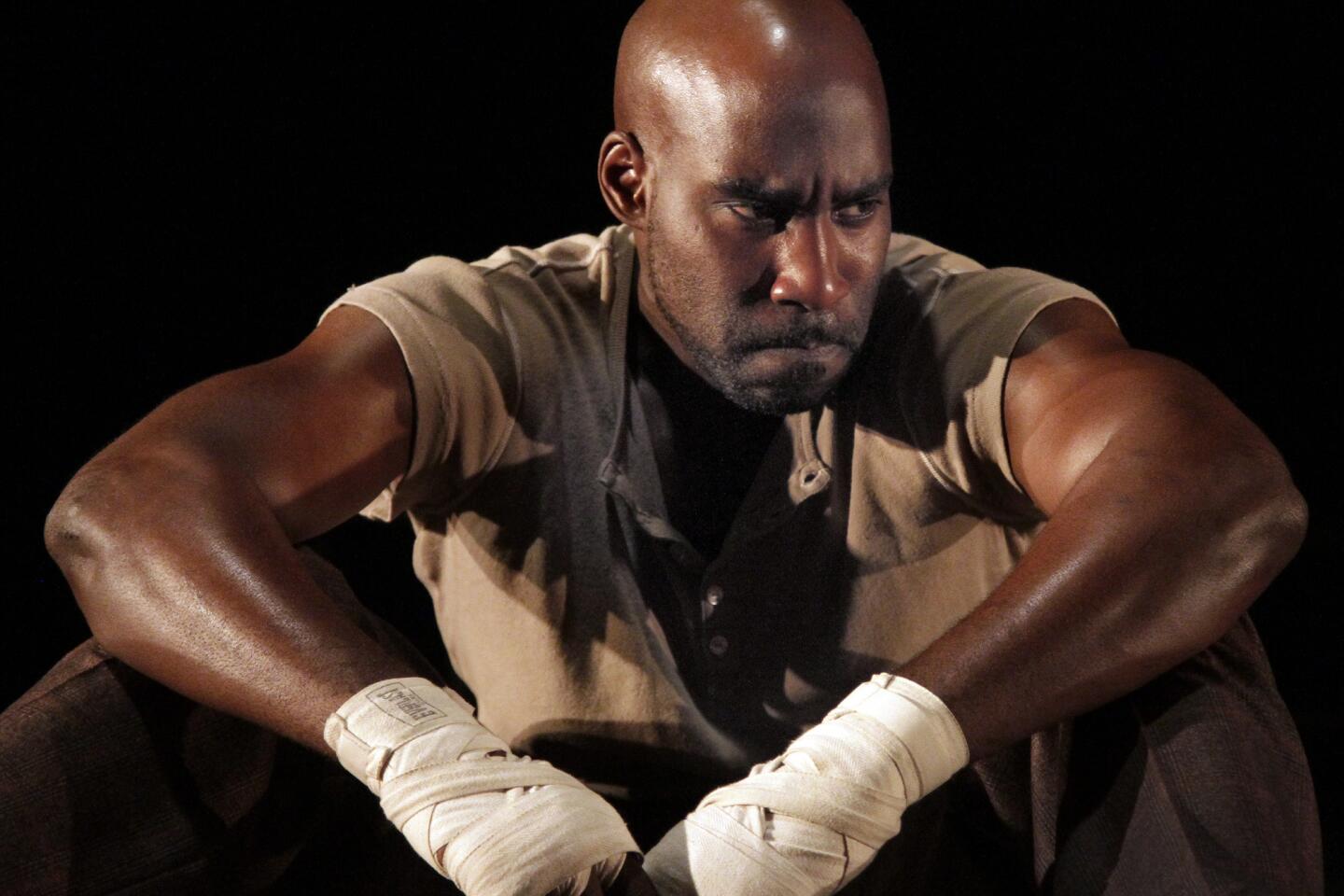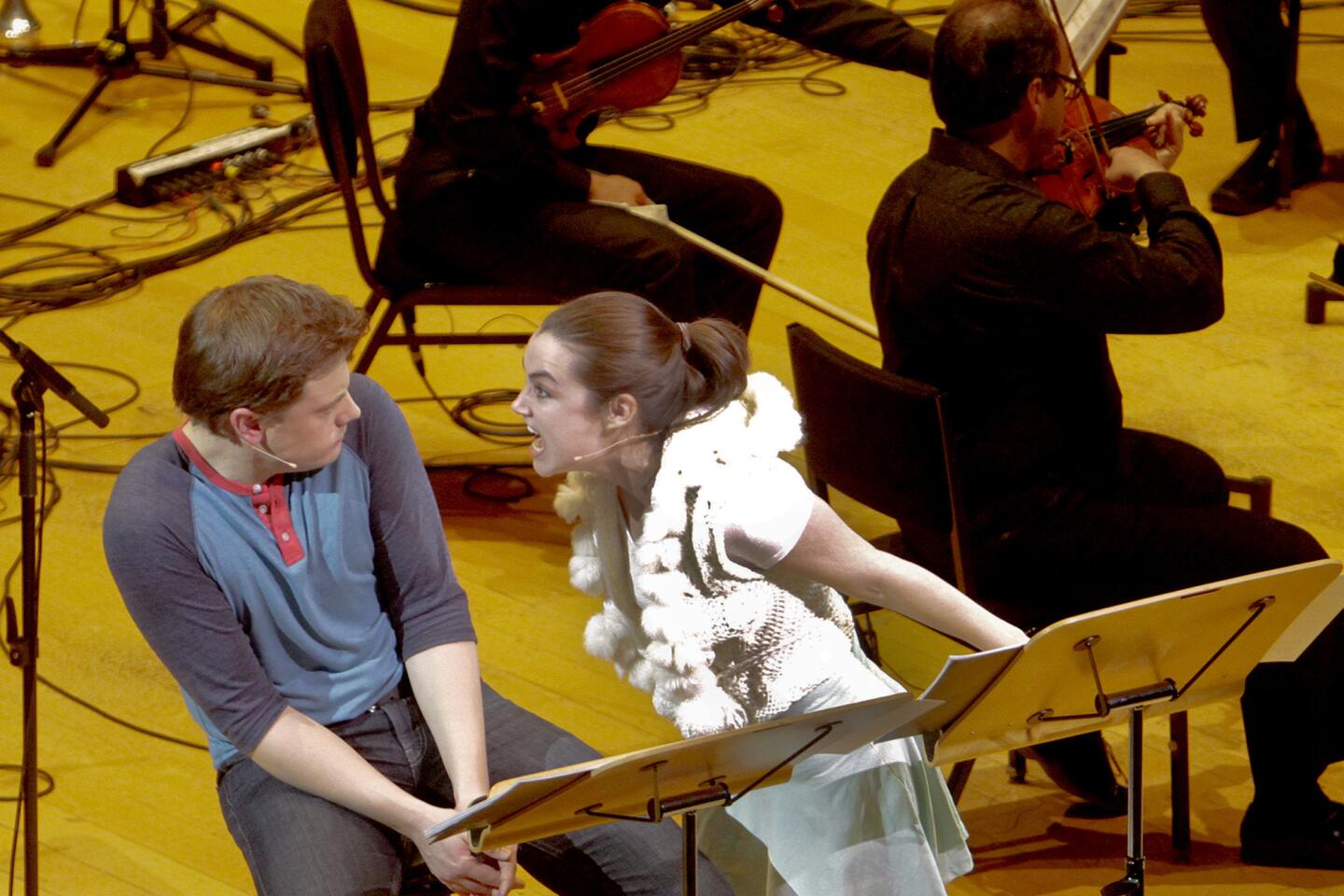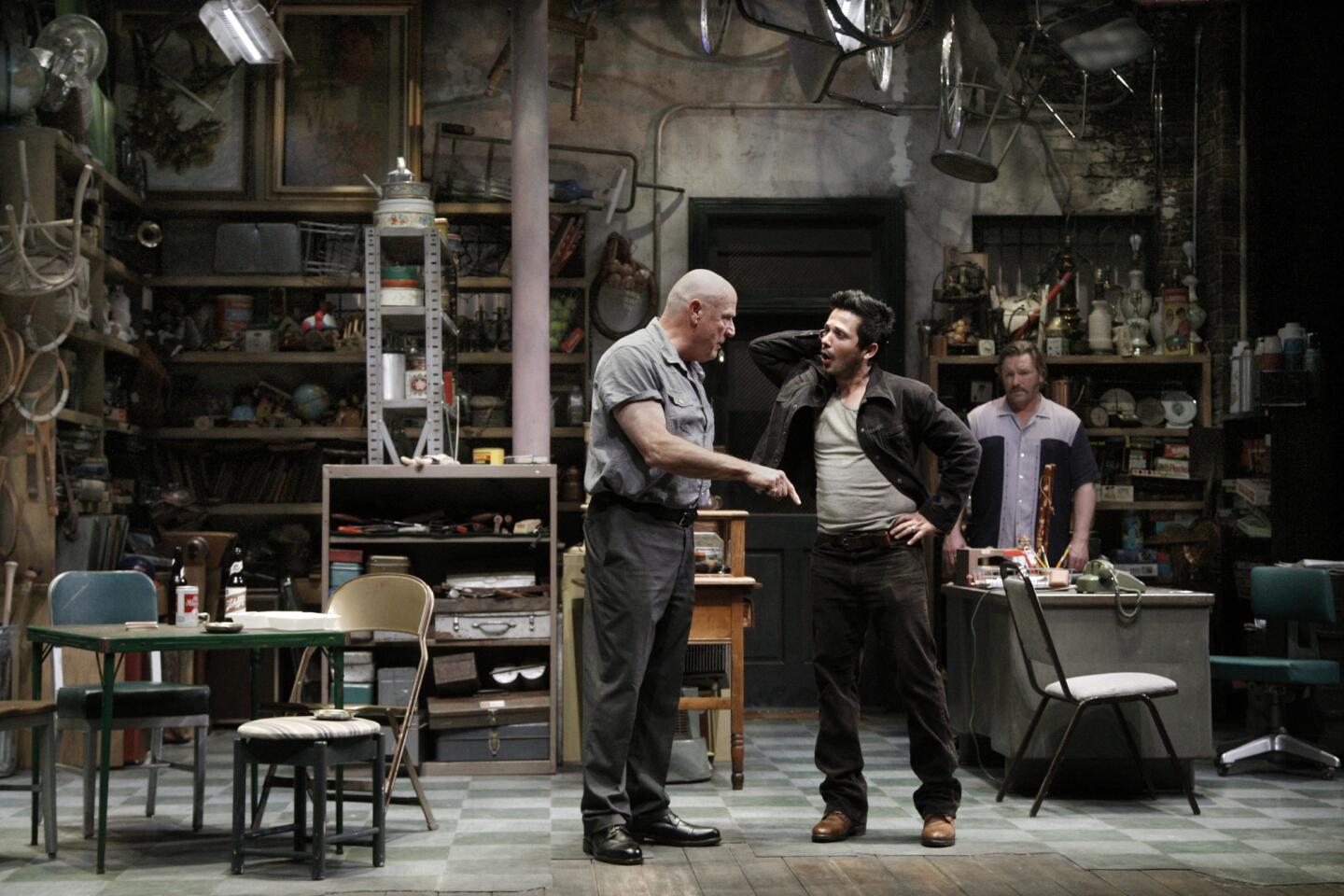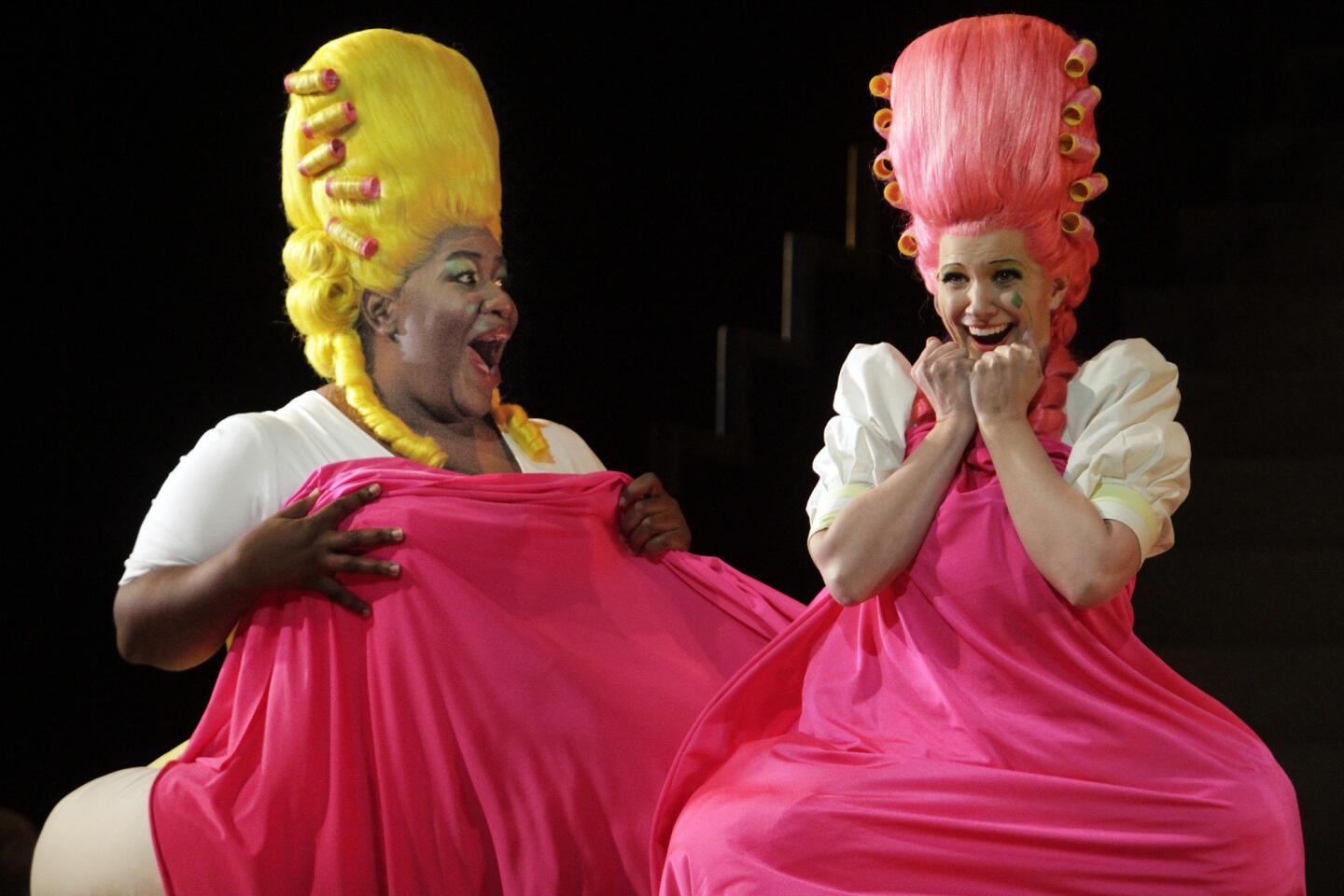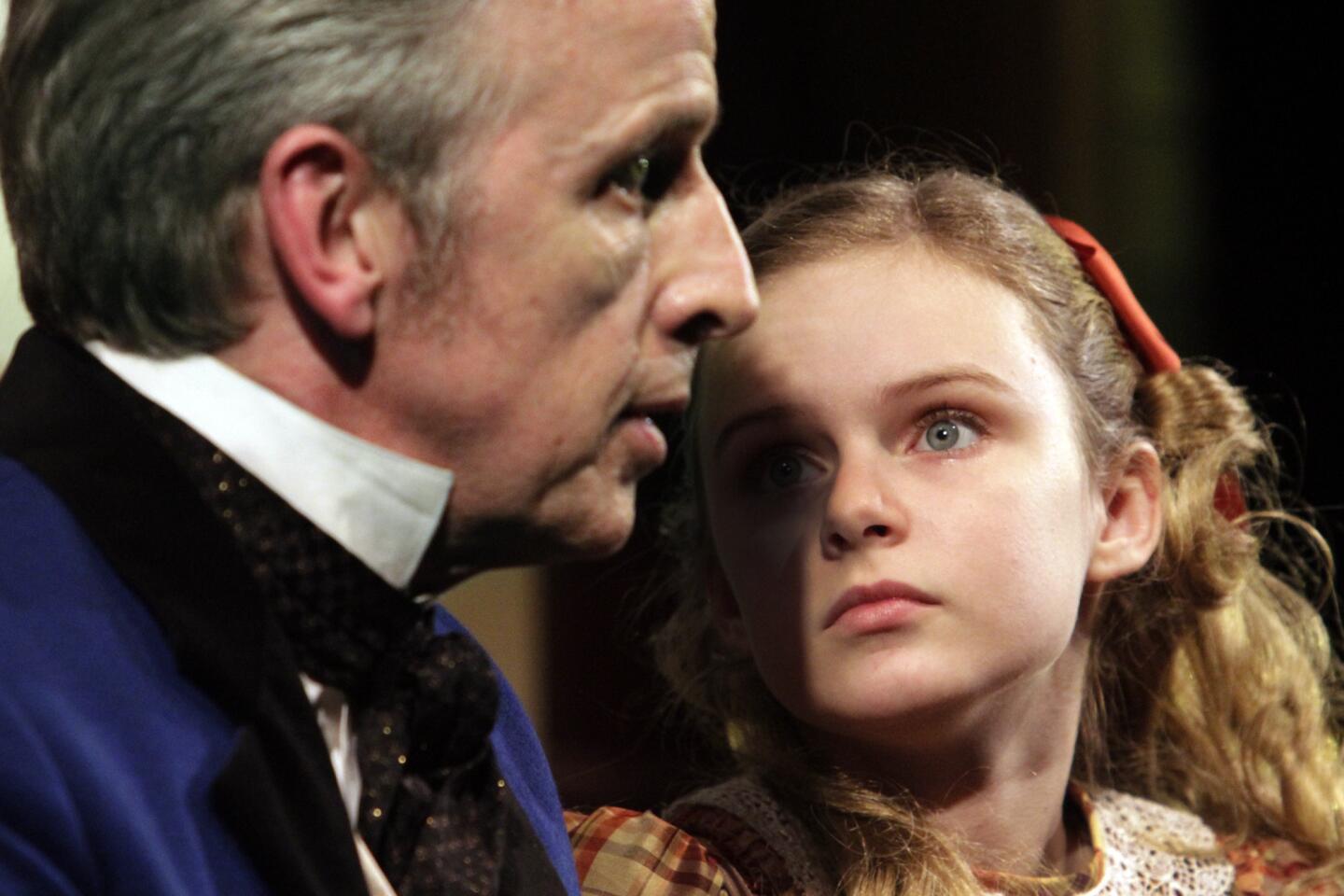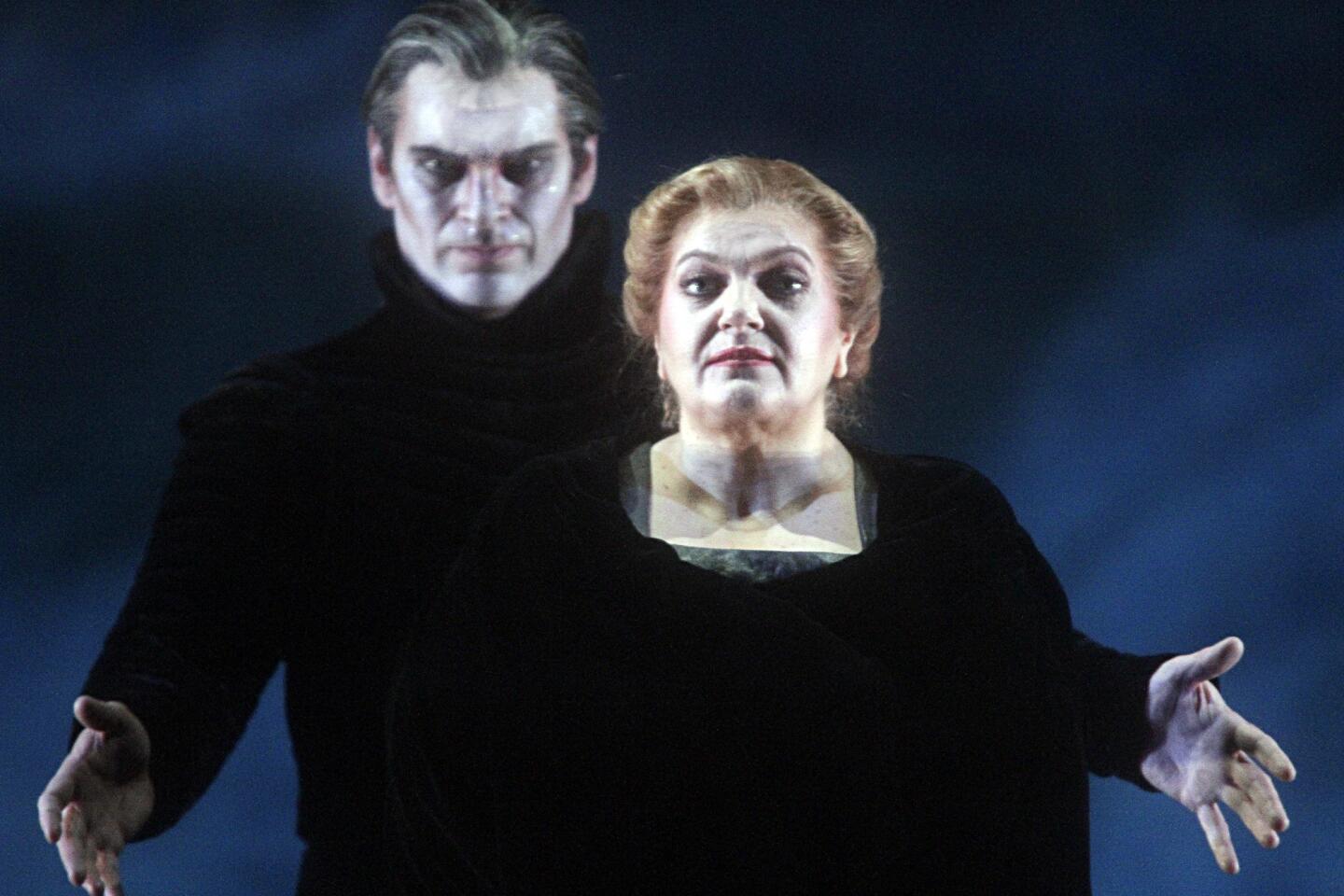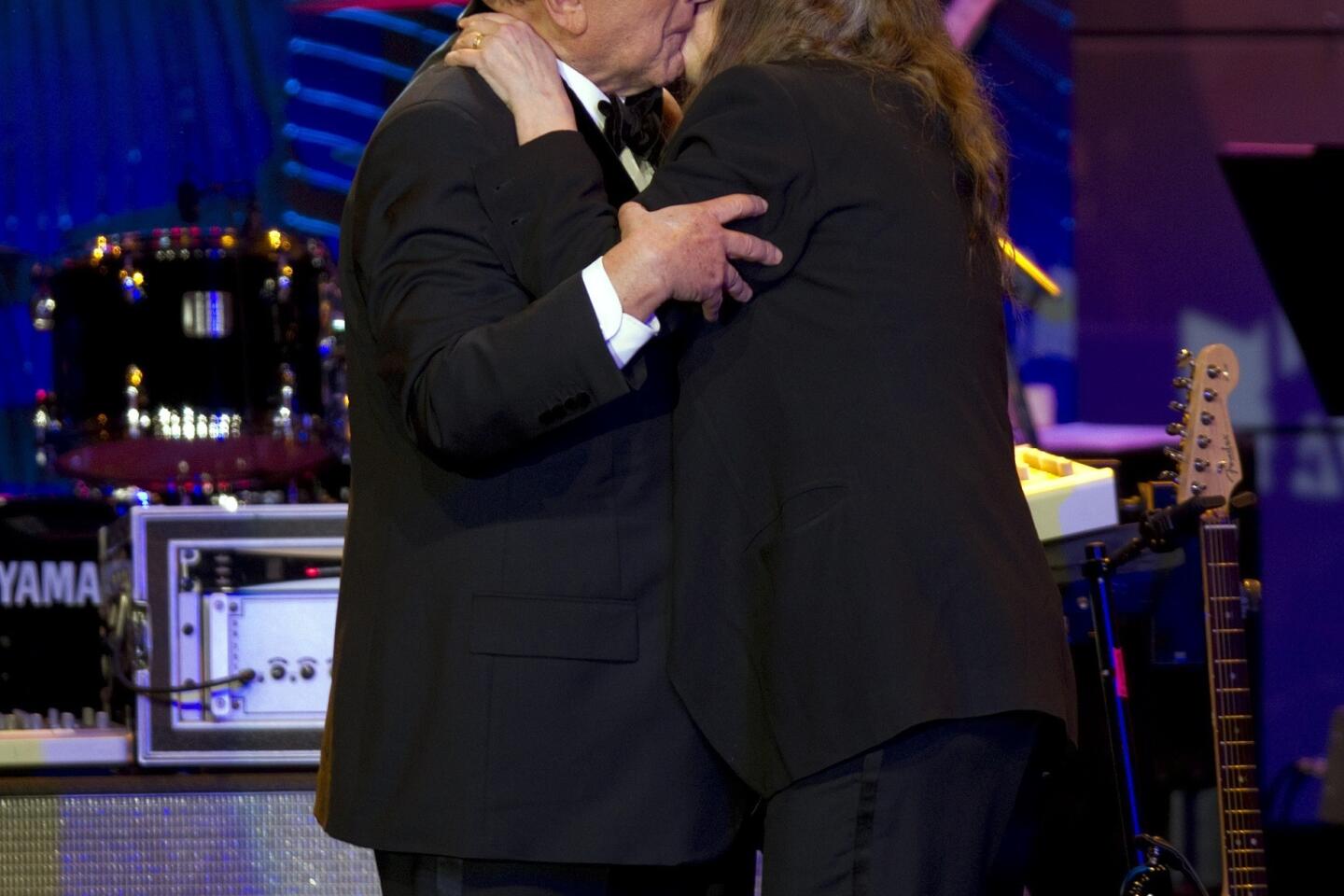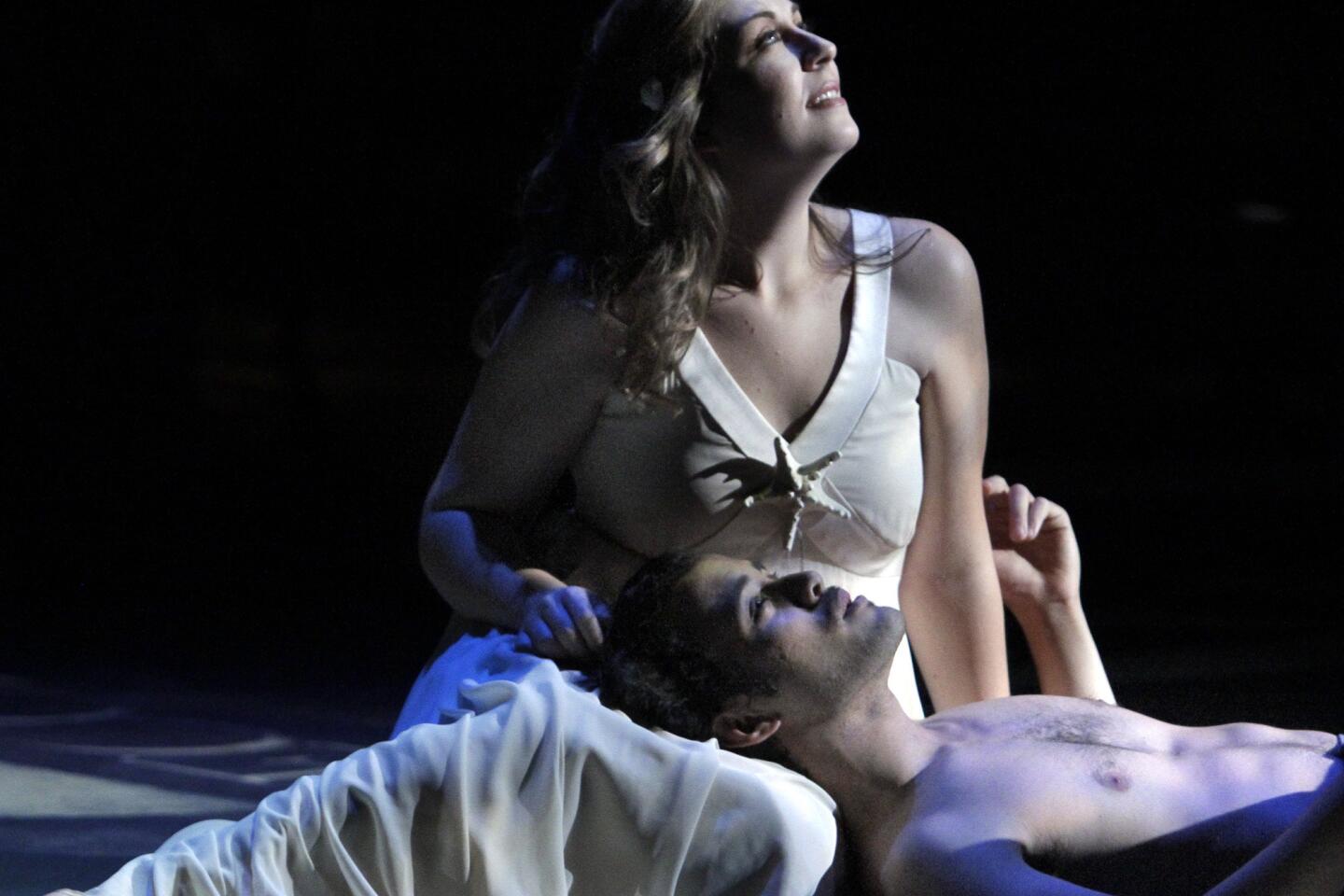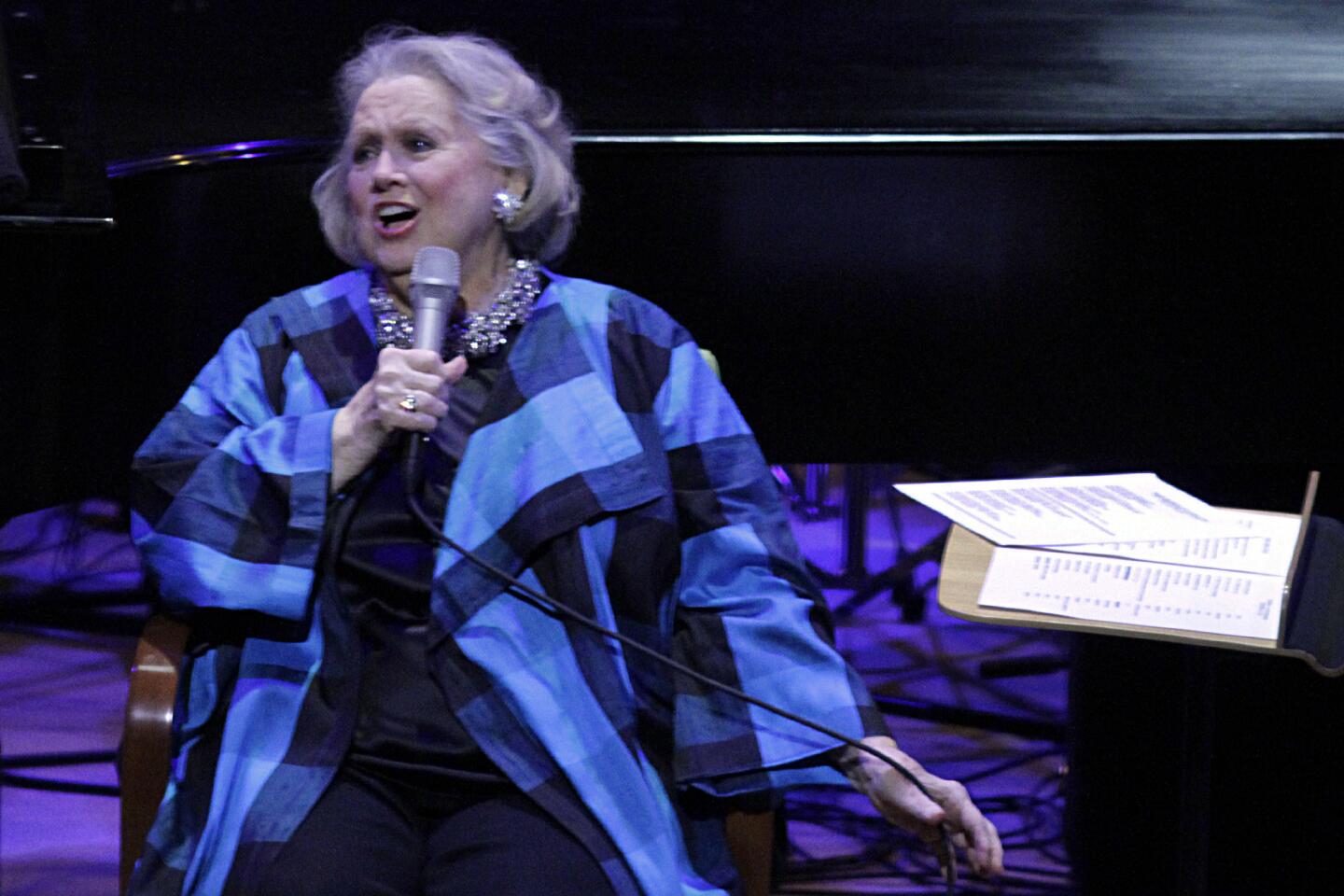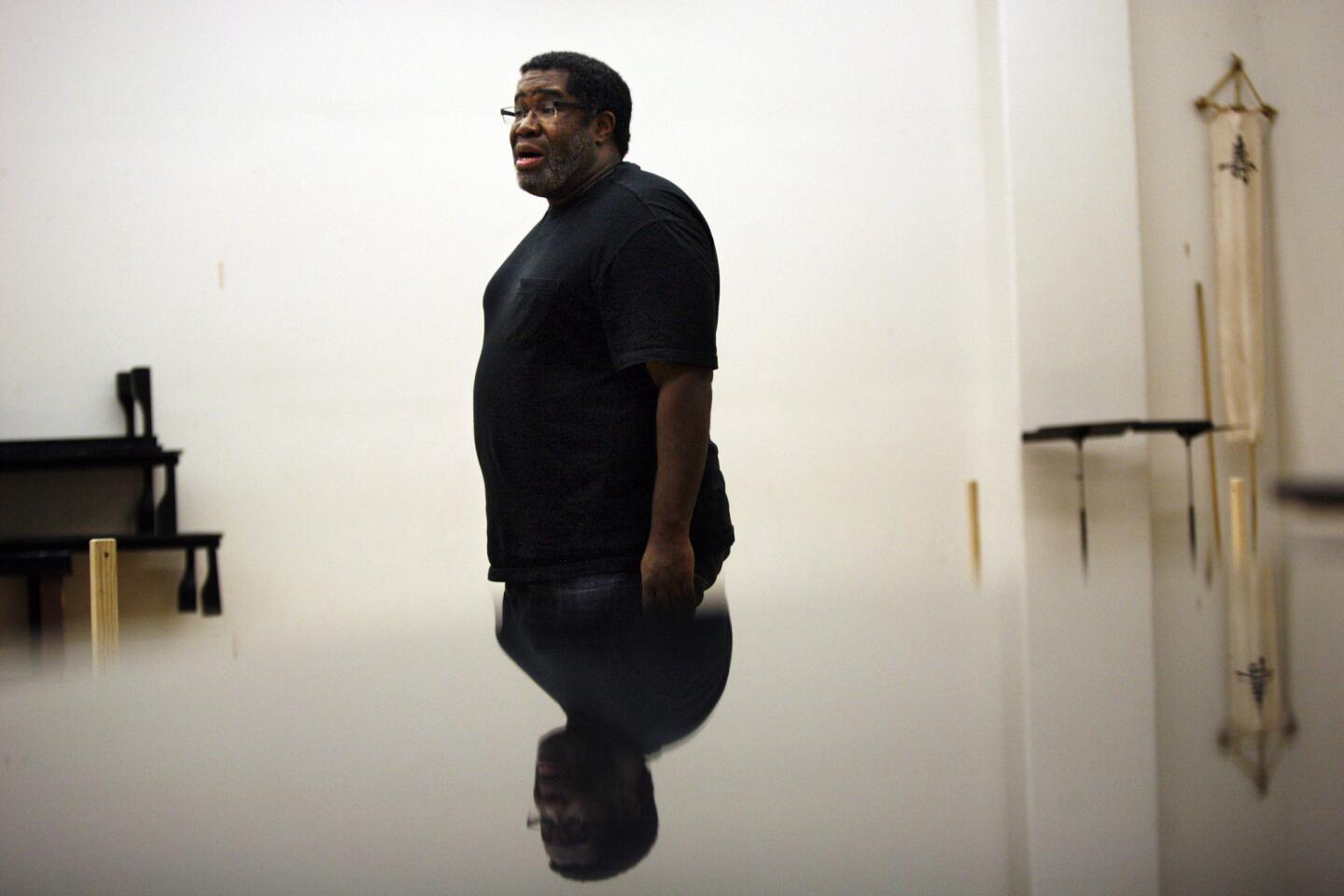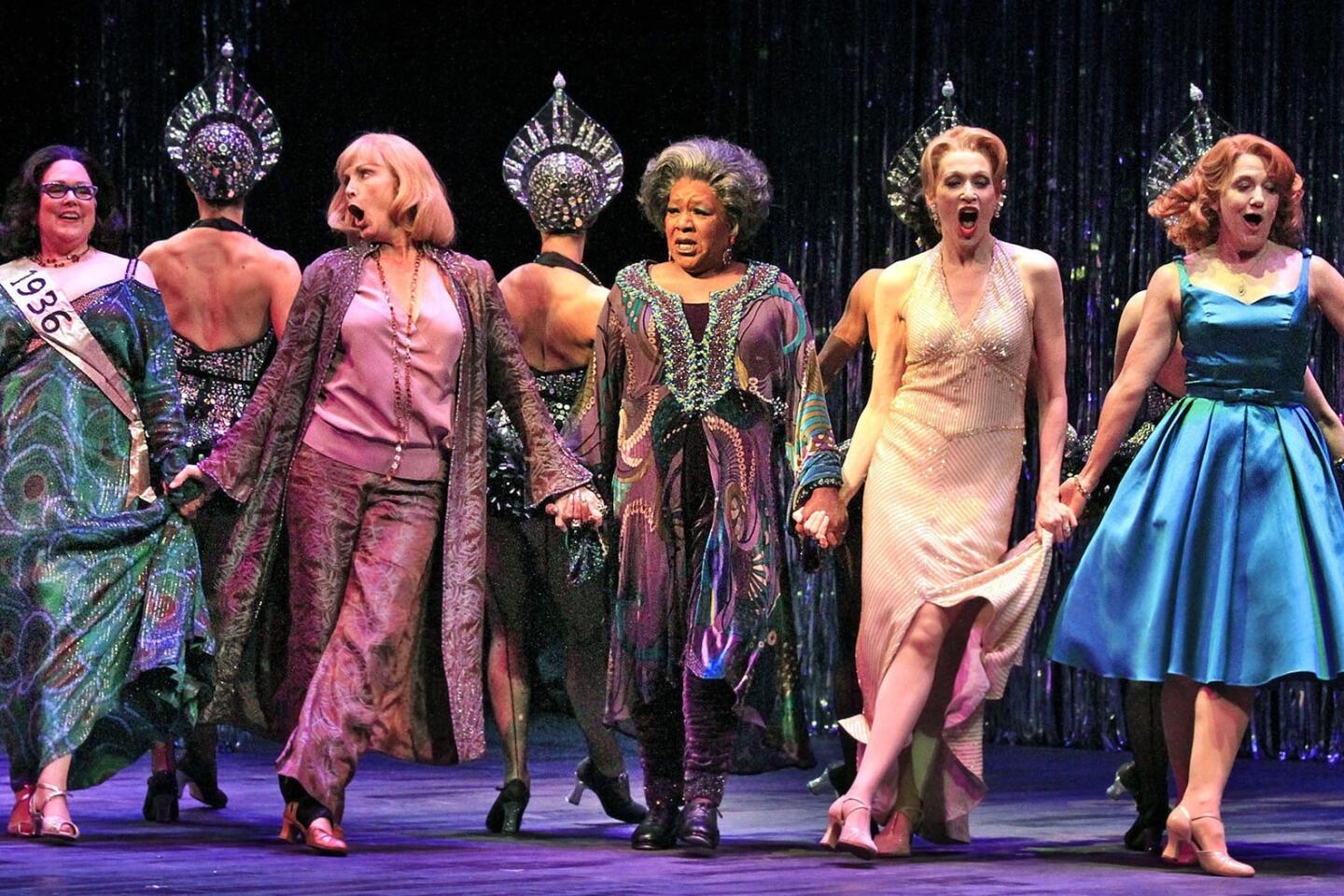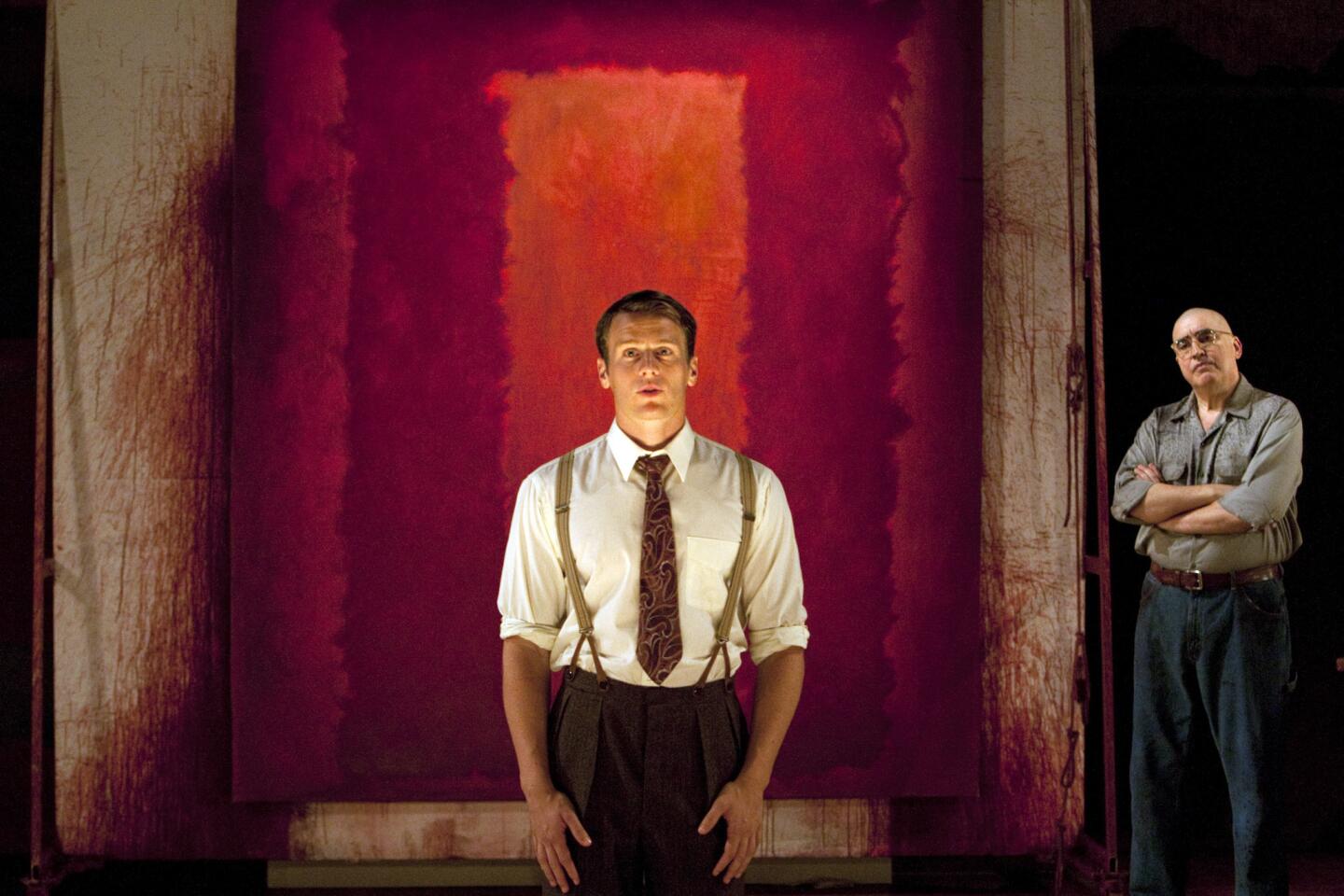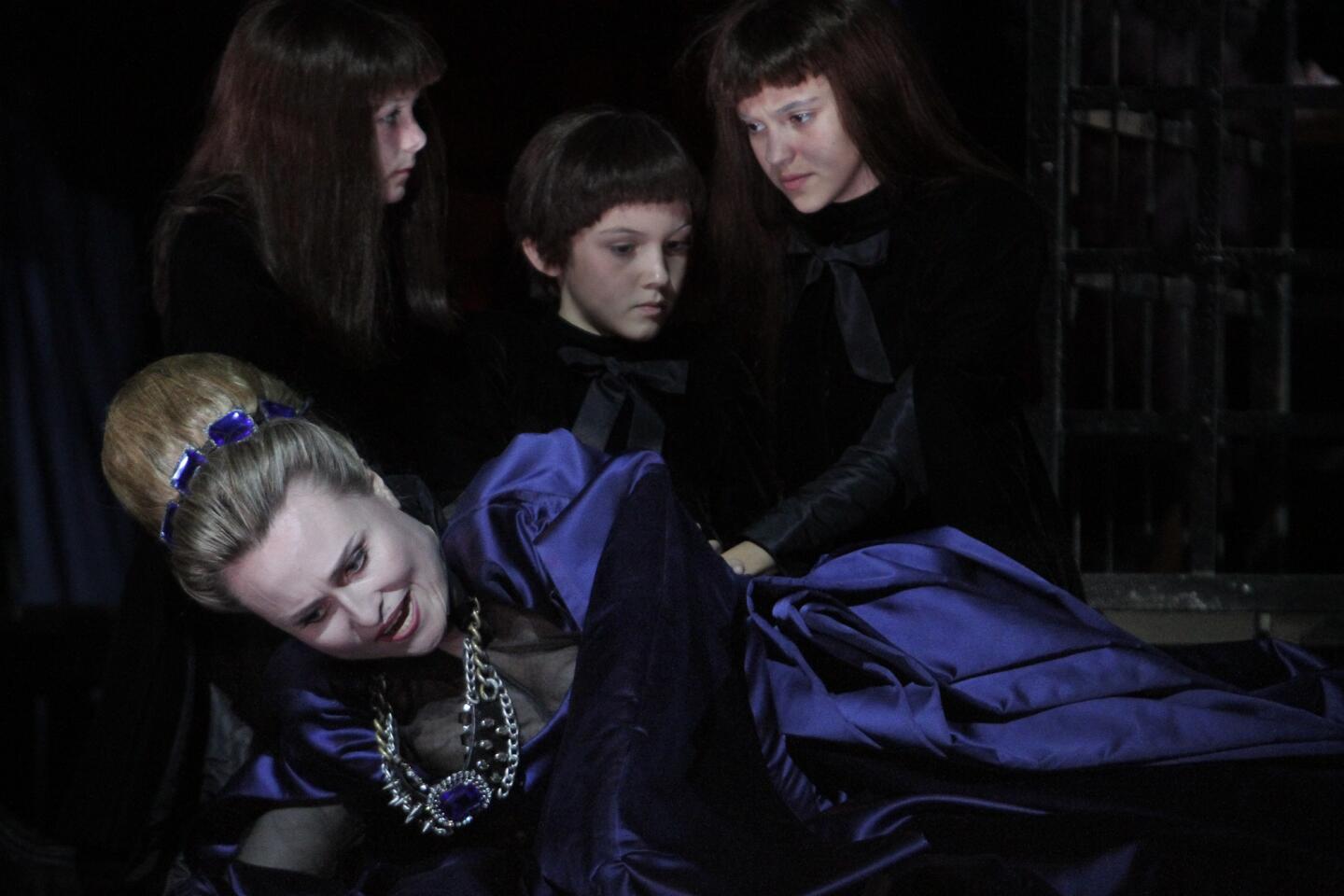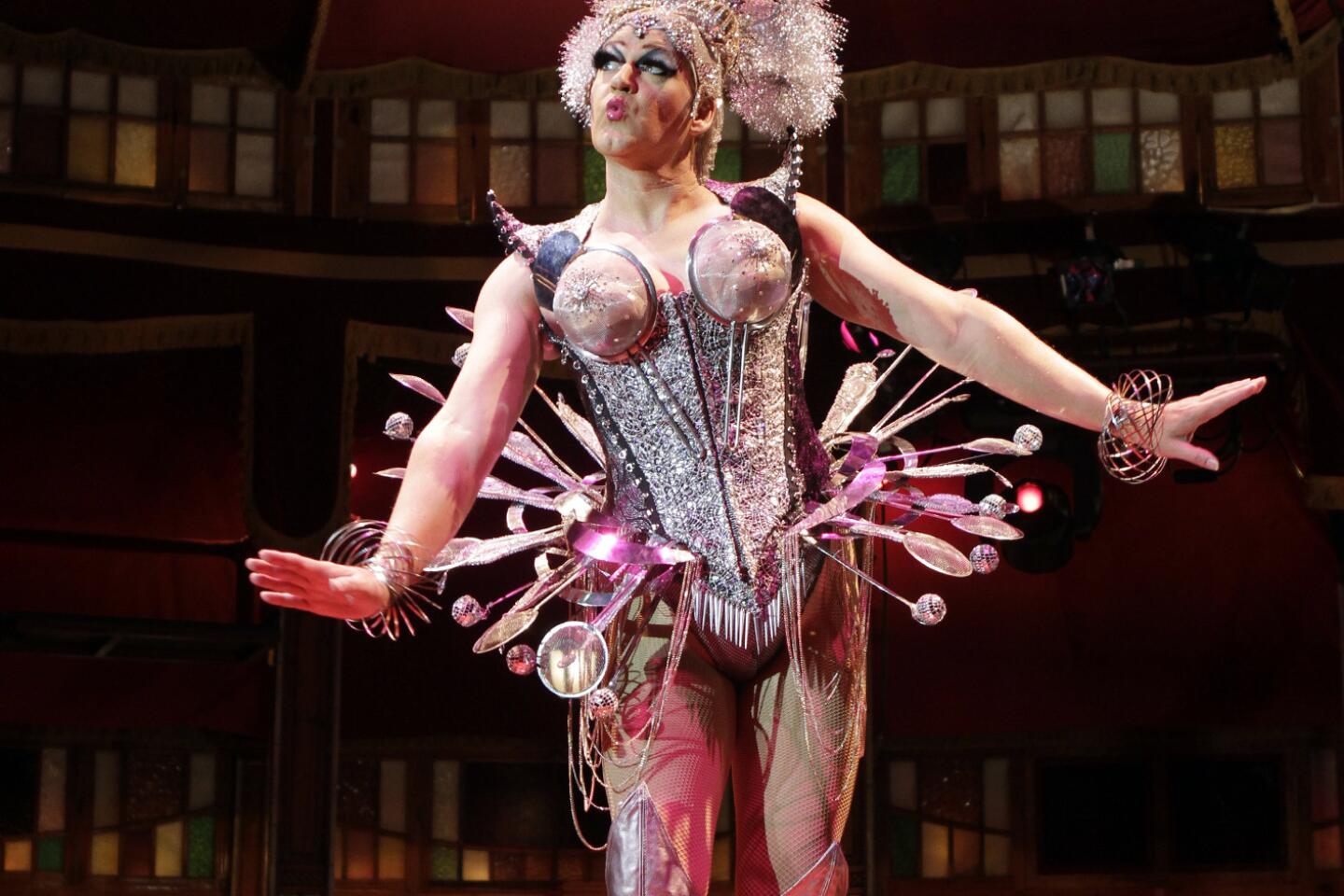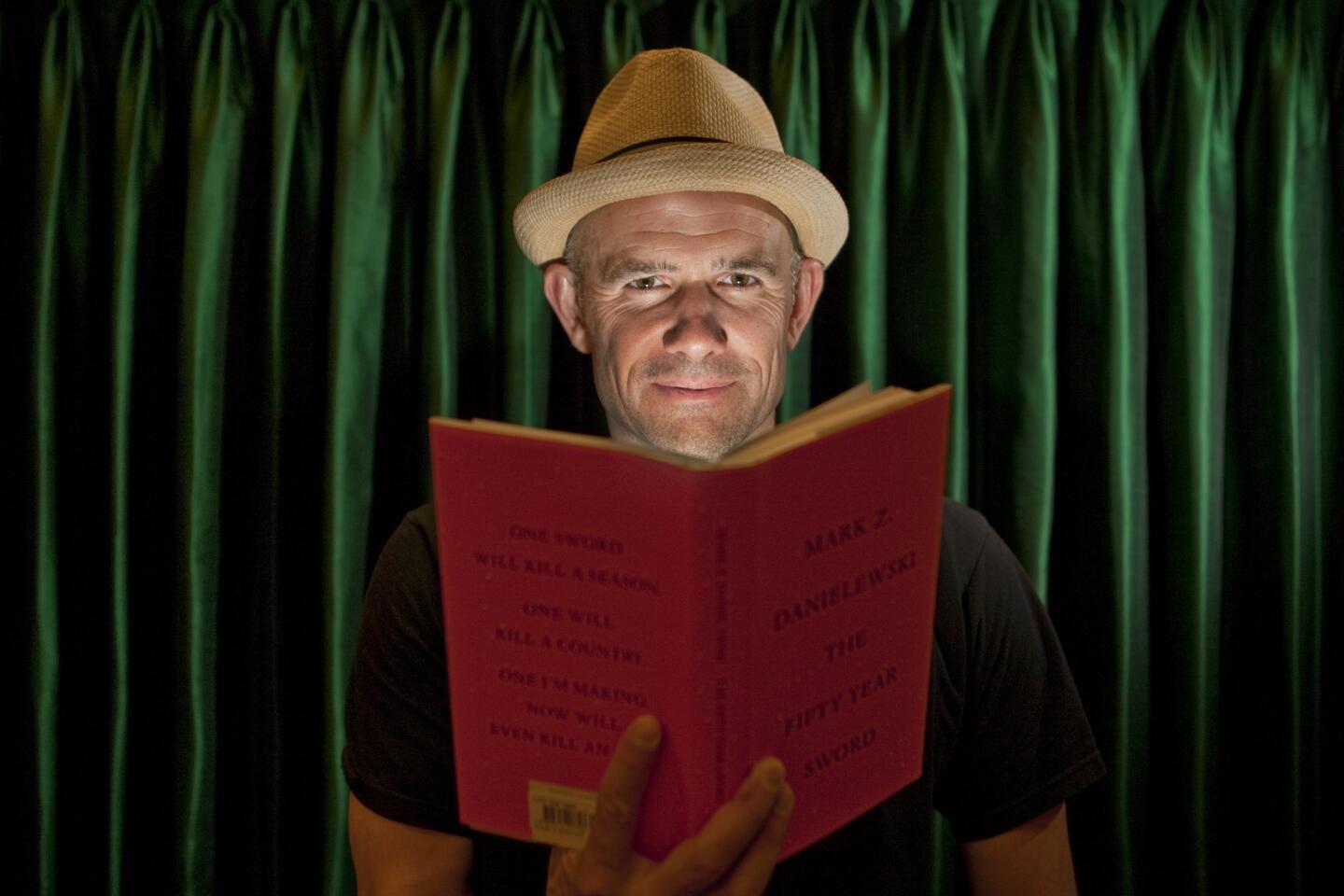Review: ‘Dead Accounts’ with Katie Holmes doesn’t add up to serious drama
- Share via
NEW YORK —The paparazzi lying in wait for Katie Holmes, tabloid bait after her getaway divorce from Tom Cruise, may be the ideal group to review her performance in Theresa Rebeck’s “Dead Accounts” at the Music Box on Broadway. Let’s just say she looks fabulous in that just-bumming-around-but-still-gorgeous way that helps TMZ make its payroll.
This isn’t to suggest that Holmes’ acting is only skin deep. She’s charming, natural and, yes, about as fresh-faced as a moisturizer model. But there’s only so much that can be done with a Rebeck play that has more topical urgency (greed, ethics and banking funny business) than dramatic finesse.
PHOTOS: Arts and culture pictures by The Times
Sharing the stage with Holmes is two-time Tony winner Norbert Leo Butz (“Catch Me If You Can,” “Dirty Rotten Scoundrels”), who pulls out all the stops in the play’s leading role. He may not have a swanlike neck or a pixie smile, but he delivers a performance of frenetic gusto as Jack, the city-slicker son who returns to his parents’ home in Cincinnati after siphoning $27 million in unclaimed (i.e., dead people’s) accounts from the New York bank where he works.
Butz practically ricochets off the walls of the simple Midwestern kitchen that’s the setting for “Dead Accounts,” but not even he can transcend the contrived nature of a character who is really nothing more than a collection of manic playwriting impulses. It doesn’t help that Jack, who has arrived with stacks of cash and a desire to lavish his family with comfort food, is such an irritating presence. A divided soul in a flashy Armani suit with a school jersey nostalgically worn underneath, he’s an urban showoff one minute, a heartland enthusiast the next.
When not breathlessly riffing on the ice cream, cheese coneys and pizza he’s bringing into the house in quantities large enough to feed an entire Little League division, he’s firing off diatribes about New York (he hates everything but the city’s Italian restaurants and glittering luxuries) or sentimentally extolling the homespun glories of his hometown. All his sister Lorna (Holmes), mother Barbara (Jayne Houdyshell) and old buddy Phil (a commendably understated Josh Hamilton) can do when Jack is in the grip of one of his garrulous passions is gape in nervous amazement.
Rebeck, whose comedy “Seminar” was recently at the Ahmanson Theatre, is a prolific playwright with a facility, no doubt sharpened through her years as a TV writer and producer, for cooking up semi-satiric dramatic situations, seasoning them with up-to-the-minute social minutiae and concluding with a dollop of cautionary wisdom. She’s not the supplest of dramatists, but she’s a solid craftsman with worthy ideas who is turning out to be something of a Broadway regular.
“Dead Accounts” is her third play to reach the Great White Way, but the slapdash quality of the writing makes me wonder if she’s in danger of becoming the female David Mamet — the playwright Broadway producers seem willing to gamble on no matter how flimsy the current script is. Rebeck’s latest takes a while to set up, and when it finally gets going another issue comes to the fore: Are the characters meant to be comic targets or empathetic figures?
Rebeck can’t seem to decide, and director Jack O’Brien, Tony-winning Broadway veteran and former artistic director of San Diego’s Old Globe, isn’t able to sort out the problem through his staging. His production draws out the sharpest colors in the cast, magnifying the characters’ most salient qualities in an amped-up TV sitcom manner.
PHOTOS: Arts and culture pictures by The Times
It’s hard to take anything too seriously. Jack’s father, who never appears, is being nursed at home, and his kidney stones are a cause of major concern for Barbara and Lorna. Jack, eager to be the hero, offers money for the best doctors and “magic” pills that will take the pain away. But he can’t resist playing a joke on Lorna about the dosage.
Rebeck wants the profundity of mortality and her easy laughs too. She comes up empty-handed.
“Dead Accounts” builds to a showdown between Jack and his soon-to-be-ex-wife, Jenny (Judy Greer making a strident Broadway debut), a pinched New York snob who trails him to Cincinnati not to reconcile with him but to extort a bundle of money. Rebeck caricatures Jenny’s haughtiness to such an extent (poor Barbara overhears her ridiculing her dishes and flatware) that it’s hard to understand why Jack would want to get back with her.
Of course “Dead Accounts” is all about the dirty allure of money, the way it encourages us to compromise our values and fudge our sense of right and wrong. Rebeck contrasts the avaricious Wall Street mentality that has contaminated Jack and Jenny with the less grasping, more diffident manner of Jack’s Midwestern loved ones, who hardly have all the answers but at least know how to say “please” and “thank you.”
Too bad they aren’t more complexly drawn. Rebeck doesn’t give Houdyshell much more to work with than Barbara’s Catholic piety and middle-class respectability. Holmes isn’t able to give dimension to Lorna, the all-grown-up pretty girl still smitten after all these disappointing years with Phil, her high school love interest who’s still too petrified to ask her out.
No wonder Jack is jumping out of his skin trying to decide how to live his life. His author, pursuing punch lines down exaggerated paths, has concealed the possibility of a middle ground.
More to Read
The biggest entertainment stories
Get our big stories about Hollywood, film, television, music, arts, culture and more right in your inbox as soon as they publish.
You may occasionally receive promotional content from the Los Angeles Times.


